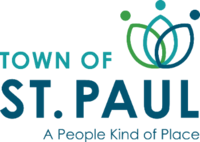- Access to Council Agendas/Minutes: iCompass Portal
- Bylaws
- Policies
- Community Grant Funding
- Employee Access
- Employment Opportunities
- FOIP
- Live Stream Meetings
- Maps
- Council
- 2025 Municipal Election Information
- News
- Public Hearing Submission Form
- Reports-Documents
- Staff Directory
- Town Talk Publications
- Contact Us
- Legal Terms of Use
- Municipal Enforcement - Peace Officer
- Bidding on Municipal Projects
How do I view the Town's rescinded (not in effect) Bylaws?
What is a bylaw?
The “by” in bylaw is an old Norse word that means “town.” A bylaw is simply a town, or local, law.
Bylaws can’t be created out of thin air. Canadian municipalities don’t have constitutional status of their own, so they can only pass laws authorized by other levels of government. Statutes like the Municipal Government Act and the Traffic Safety Act delegate authority for local bylaws. The “whereas” clause you see at the beginning of bylaws usually explains where the authority for the bylaw is coming from.
Some bylaws are mandatory. For example, every municipality in Alberta must pass a Land Use Bylaw. Some bylaws are required only if a municipality wants to carry out a certain type of activity. Bylaws can also customize provincial statutes to allow for local enforcement.
What is a bylaw "reading"?
You might notice in the newspaper or the Town website that a bylaw has received “first reading,” or that it passed “third and final readings.” All bylaws must pass three readings before they can become law. All this means is that Council has three separate chances to consider the pros and cons, and to vote, on a particular bylaw. This regulation is there to ensure that every bylaw is carefully considered before it is passed.
- First reading is a test of whether or not the Council wishes to consider an issue at all. It is not usually an indication of whether or not the Council supports the bylaw and doesn't guarantee further bylaw readings.
- Second reading is when the Council debates the issue, make amendments, and vote again. This time, the Council is voting on whether or not they support the bylaw.
- Third reading is the last chance for debate, amendments, and voting.
If a bylaw fails any of the readings, it dies (not in effect).
Does the public have opportunity for input?
Lots of things can happen in between bylaw readings. In some cases, like Land Use Bylaws, municipalities are required to hold a public hearing after first reading has passed, but before second reading is considered. The reason first reading must be passed, well, first, is so Council can decide if they support continuing with the debate at all. After the public hearing, Council will call for second reading, which is when they can debate the bylaw, propose changes, and ultimately vote on whether or not it should pass.
Sometimes Council will decide to hold a public hearing, or gather public input in other ways, even when it is not required by legislation. Council also sometimes asks Town staff (Administration) to provide more information before a final decision is made. This usually happens after second reading, when Council has had a chance to debate the issue and determine if they need more input before continuing.
Who do I contact if I have any questions or can't find a Town bylaw?
You may contact the respective Town department name is listed on the applicable bylaw.
Alternately, you may contact Planning & Legislative Services at 780-645-1766 or via email to: pd@town.stpaul.ab.ca to obtain a copy of a bylaw.
